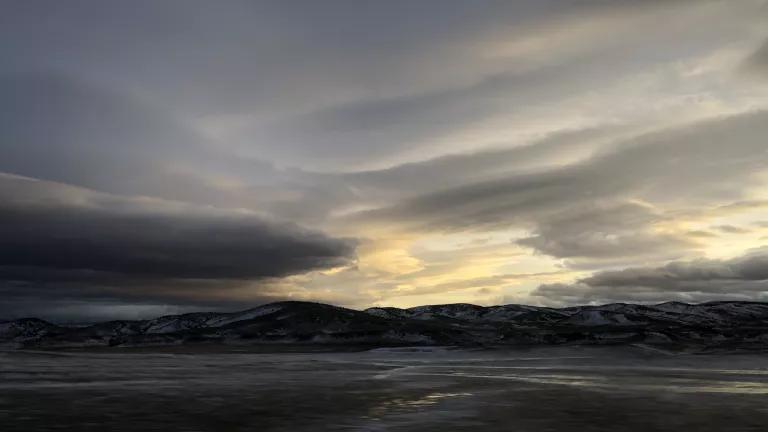
A Montana winter sunset
Guest blog post written by Madison Dipman
When I was younger, I would spend hours researching Florida panthers, snow leopards, and other endangered species to create elaborate, animation-laden PowerPoints. I did projects on gray wolves and panthers for school. I even dressed up as Jane Goodall for Halloween.
Looking back, I am not sure what pulled me away from my passion and enthusiasm for wildlife conservation. I entered college expecting to attend medical school, but during my time there, I (re)discovered my love for ecology and continued my education at UC Berkeley following graduation. As someone who has spent months and months trying to answer a single research question, I have a unique appreciation for the scientists who dedicate their lives to working on ecological questions (and whose research I used extensively in projects for the NRDC). However, while earning my Master’s I realized that I could no longer ignore my drive to be more involved in environmental advocacy—to truly “take a side” on ecological issues and speak for innocent animals that cannot.
That drive brought me to the NRDC website and to this internship, and I could not be more grateful. I immersed myself in community ecology during college because I enjoy thinking about how living things interact with one another and their environment and about how changes in one biotic or abiotic factor can have ramifications throughout an entire ecosystem. I still view so much of what I read through that “big picture” lens, but over the course of this internship, I found myself approaching these issues from a different viewpoint—one in which each individual animal is valuable and worth saving because they have a right to share the landscape with us and not just because they play an important ecological role or contribute to ecosystem services.
Considering my childhood passions, it is no surprise that I was drawn to large carnivore issues, and I spent most of my internship researching and writing about grizzlies, coyotes, and American black bears. I found myself staying late to read paper after paper about these incredible animals and the challenges they face to survive in the “Anthropocene.” Challenges that unfortunately receive very limited news coverage.
Matt and Zack encouraged me to focus on my interests and gave me the flexibility and independence to work on fact sheets and responses to proposed policy changes related to large carnivores. Fittingly, I finished my internship by working with Zack on letter to Wyoming Game & Fish outlining our opposition to proposed trophy hunting of grizzly bears in the Greater Yellowstone Ecosystem. I also had the chance to participate in on-the-ground work with Zack installing an electrified fladry fence on an Idaho ranch with the help of Wildlife Services. This “turbo-fladry” fencing provides ranchers with a nonlethal alternative to trapping and shooting wolves. I am truly impressed with NRDC’s commitment to building relationships with stakeholders in wildlife management outside of the environmental nonprofit realm and appreciated the chance to be an active participant in a project to protect wolves. (My 10-year-old self would be proud.)
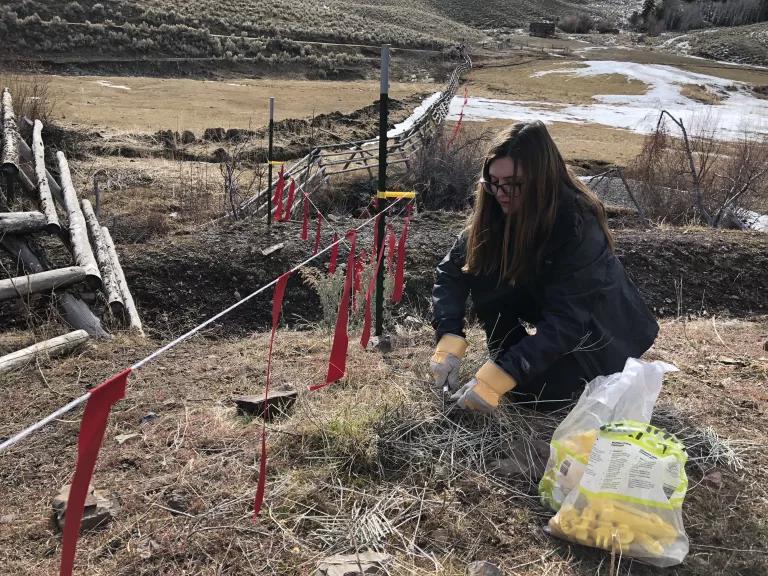
Clearing brush while setting up fladry
NRDC
This experience resonated with me on another level as well. It is so tempting to categorize things in a binary way—as good/bad or as right/wrong. The nature of our political environment is conducive to this way of thinking, but it is not an accurate portrayal of the world, especially with regards to environmental issues. Working with Wildlife Services thrust me out of my comfort zone and forced me to interact—in person—with individuals that have a radically different view of the world than I do. Yet (with tremendous persistence from Zack), we all came together to solve a problem in a way that will benefit humans and carnivores.
Carnivores in North America have not had it easy over the last few centuries, but we have a chance to change, to adapt to their presence like they have been able to do with ours, and usher in a new era of coexistence. I am proud of the work I did on this front while interning for the NRDC and hope to continue to do so in the future.
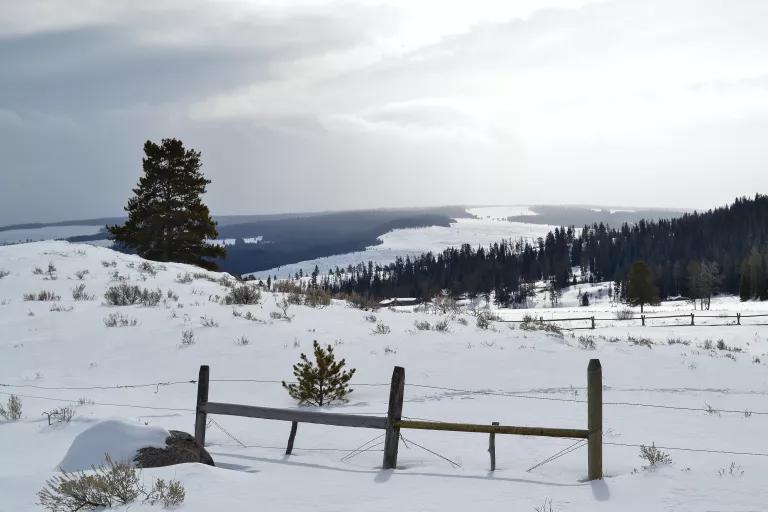
The long but beautiful Bozeman winter
P.S. I know we did not always see eye-to-eye on the weather, but thank you, Bozeman, for all the delicious cups of coffee to help me through LSAT studying, for all the stunning sunsets, for introducing me to Matt, Zack, and the office pups, and for renewing my fervent desire to protect our fellow animals.
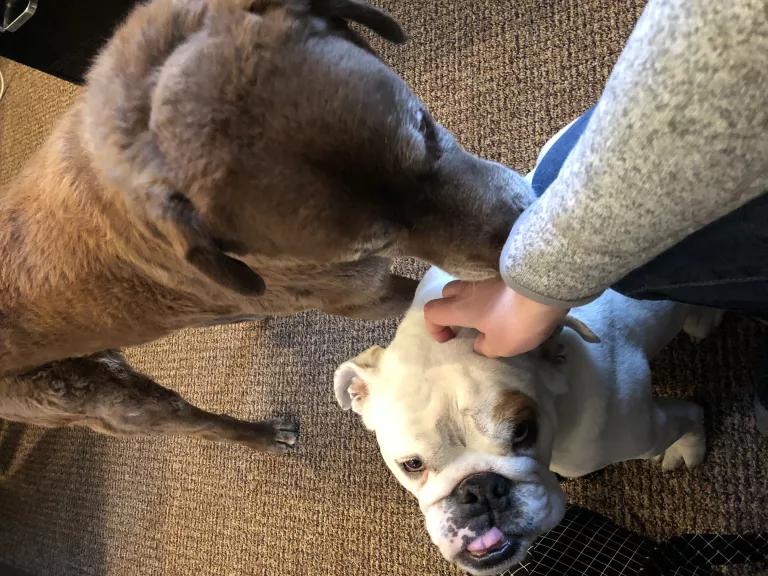
Office dogs Beef and Duke
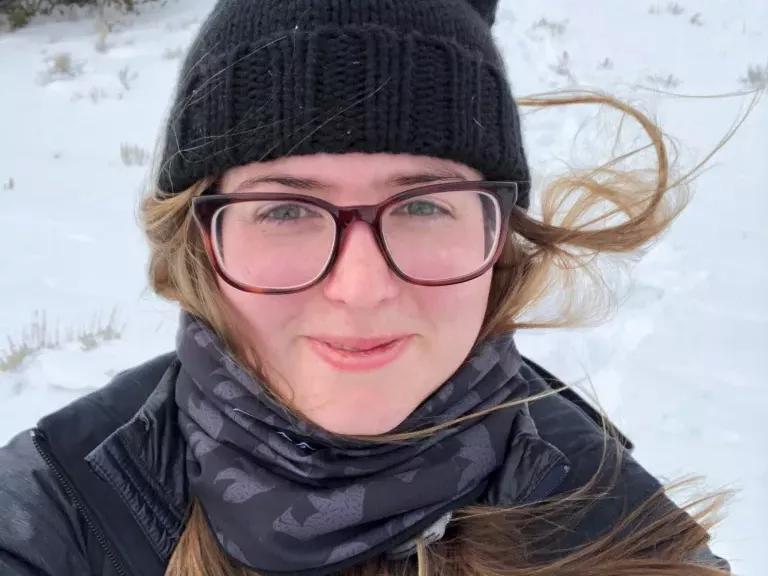
Madison Dipman was the Winter Wildlife & Energy Intern in NRDC’s Northern Rockies Office in Bozeman, Montana, this winter. She graduated from Pomona College with a degree in Biology in 2015 and received her Master’s from UC Berkeley in Integrative Biology in 2017. Madison's internship was made possible by a generous grant from Robert and Dana Reisse in memory of their son Andrew.

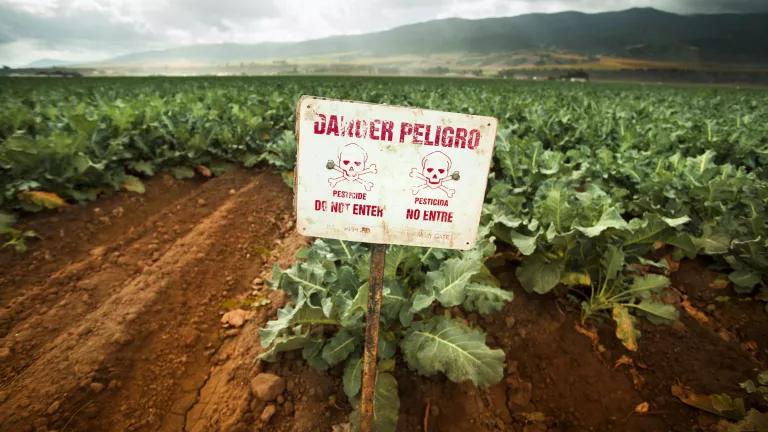
.png.jpg?h=29234840&itok=DuEqeGRy)